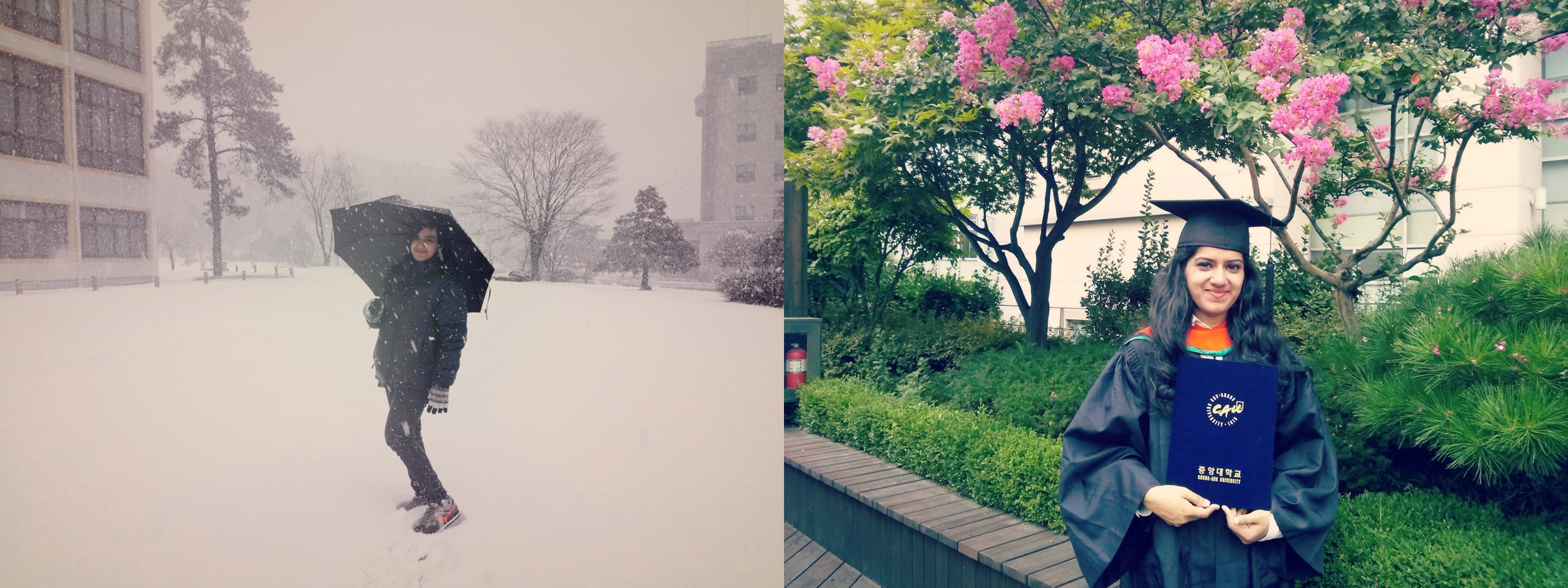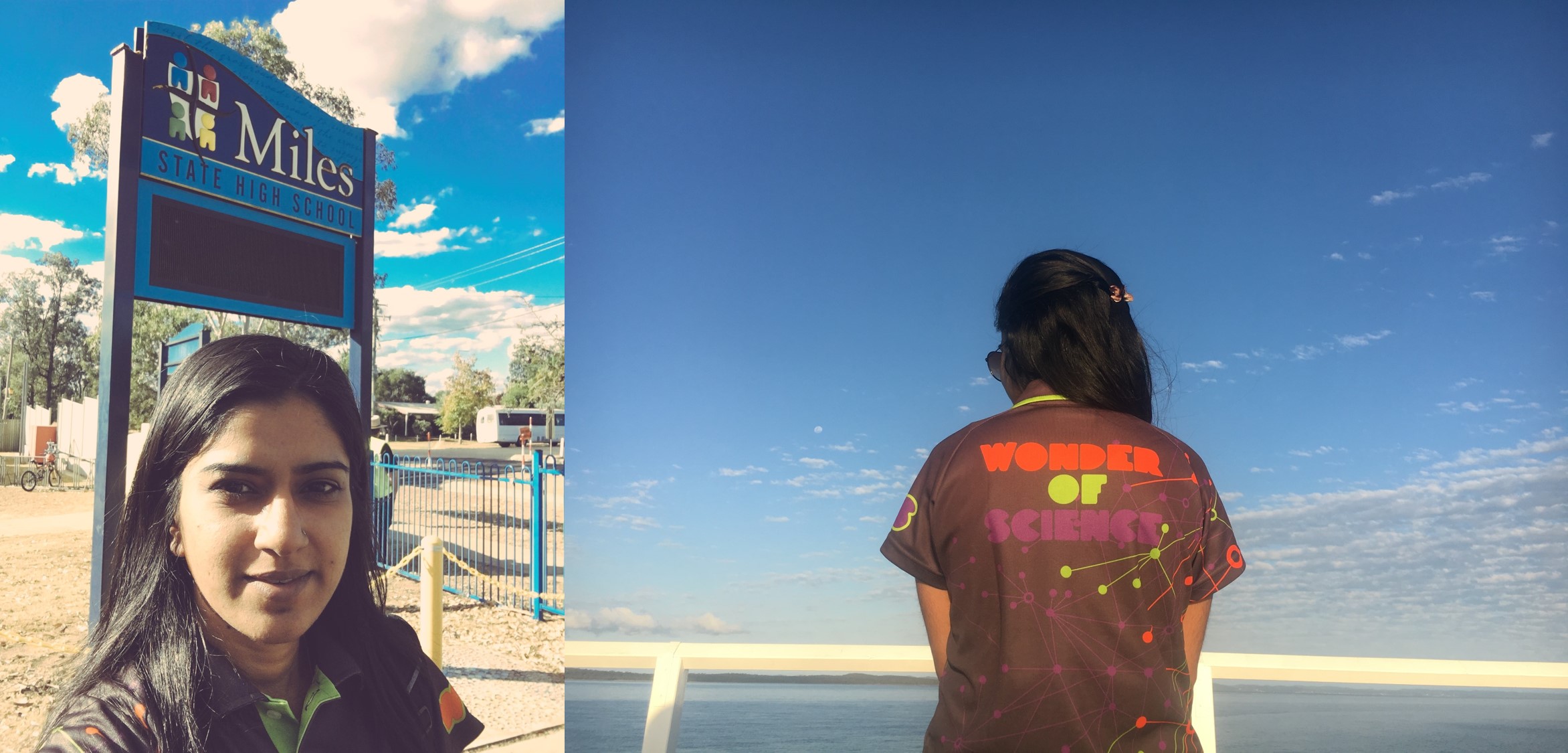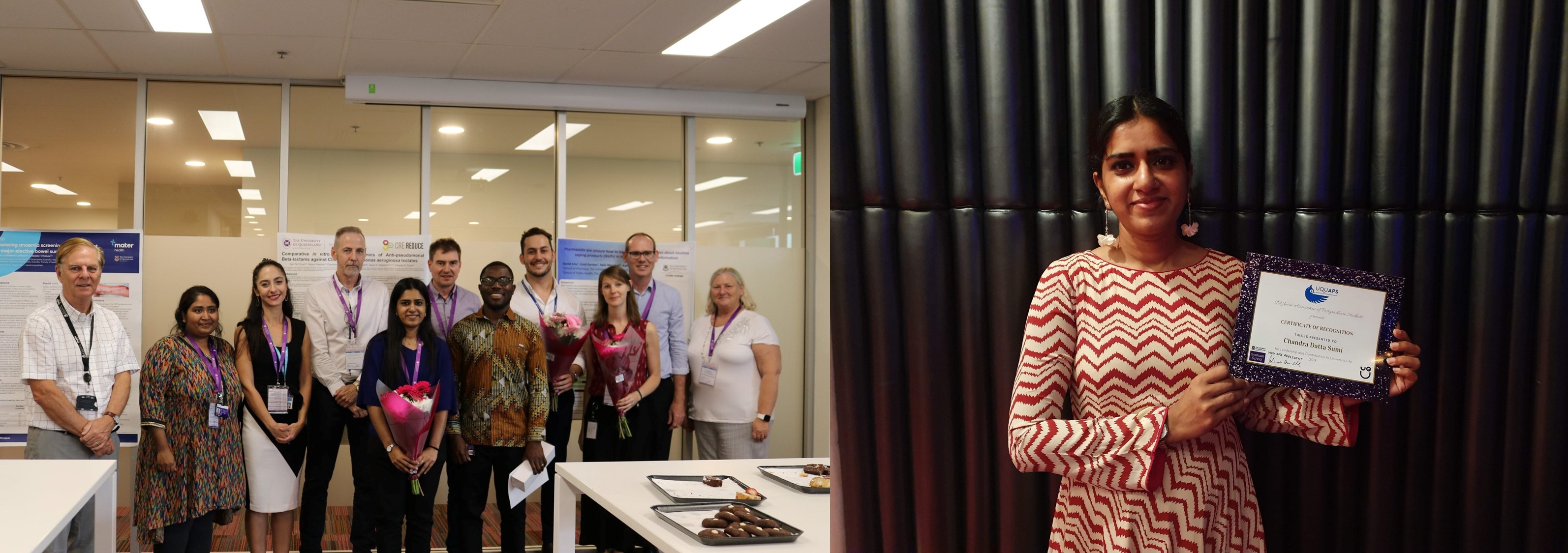I grew up in Bangladesh, a small south Asian country, where antibiotic resistance is a significant crisis in the healthcare sector. This has been my inspiration to work on novel antimicrobials during my postgraduate degrees.
My journey of studying abroad started in 2013 when I enrolled in a Master of Science degree in Systems Biotechnology in South Korea.

When I started my university studies, I never imagined I would study and work overseas as a researcher. I didn’t think about getting a PhD or following the path to becoming a scientist until the third year of my Bachelor of Pharmacy.
At that time, I was helping one of my supervisors in their laboratory experiments. I was thrilled and excited to see how researchers critically think of the problems, use their innovative ideas to approach a solution of the problem, and contribute to the scientific community. Working first-hand with my peers was an eye-opening experience, which inspired me to become a researcher.
When considering where to undertake my PhD, I chose The University of Queensland (UQ) because I wanted to study at a world-renowned university with excellent research facilities and lab infrastructures, a global reputation, and fascinating research topics. For me, UQ ticked all the boxes. Back then, I was living in South Korea and had experienced a few snowy winters there. The (sub)tropical weather in Queensland felt promising, and it was an easy decision for me to move to beautiful Brisbane!
My PhD research was focused on optimising antibiotic concentration that can kill bacteria effectively and suppress the emergence of resistance of ESBL-producing bacteria (such as Escherichia coli and Klebsiella pneumoniae). These types of bacteria are mainly responsible for sepsis in critically ill ICU patients. Beta-lactam antibiotics are the most commonly used for empirical agents in ICU patients; however, many beta-lactam dosing regimens are based on data taken from healthy volunteers who have different pharmacokinetics compared to critically-ill patients. Thus, the conventional dosing regimens of beta-lactams against ESBL-producing Enterobacterales are sub-optimal. The emergence of resistance make it challenging for clinicians to prescribe the appropriate antibiotic treatment.
My research showed that prolonged infusions of beta-lactam antibiotics such as piperacillin-tazobactam might suppress the emergence of susceptible ESBL-producing K. pneumoniae in critically-ill patients. Furthermore, against less-susceptible E. coli and K. pneumoniae, beta-lactams in combination with aminoglycosides showed synergistic bactericidal activity and resistance suppression, providing an additional therapeutic option for treating both less-susceptible and multi-drug resistant infections as empirical therapy.
My key research interest is pharmacokinetic/pharmacodynamic of antimicrobial agents, and I am currently working at the Antimicrobial Optimisation Group at Burns Trauma & Critical Care Research Centre (BTCCRC), UQ Centre for Clinical Research.
Undertaking study overseas was not an easy decision to make. Being away from family has been challenging – but I feel privileged to have experienced living in two countries with different cultures. Over the last seven years, I have found friends who are like family and have had the opportunity to work alongside excellent and inspiring mentors, colleagues, and peers.
Since 2018, I have been contributing as a Young Science Ambassador at Wonder of Science. Engaging with the school kids and motivating them for STEM has been a rewarding experience for me during my study.

I have also done several voluntary works outside of my study. I was involved with the School of Pharmacy-QAEHS HDR committee as a student representative for 2 years. I worked as a student rep at the School of Pharmacy Research Strategy Committee and HaBS HDR committee. I was also the Chair of the Pharmacy-QAEHS conference organising committee in 2019. My voluntary activity helped me to achieve the UQU Association of Postgraduate Students (APS) Leadership and Contribution to University Life award in 2019. I was also an executive committee member of the UQ Bangladesh Association, and Bangladesh Association in Brisbane Inc, a community organisation for Bangladeshi people living in Brisbane.

My advice for prospective PhD students would be to ask questions all the time, talk to your mentors from time to time, do not compare your PhD work to others, build your research rapport and network, and have a can-do attitude. Every PhD student should have a social life outside of their PhD.
Overall, I have enjoyed my PhD journey at UQ very much and I will always cherish my experience here. Receiving the official email confirming that I completed my PhD was the highlight of it all!

